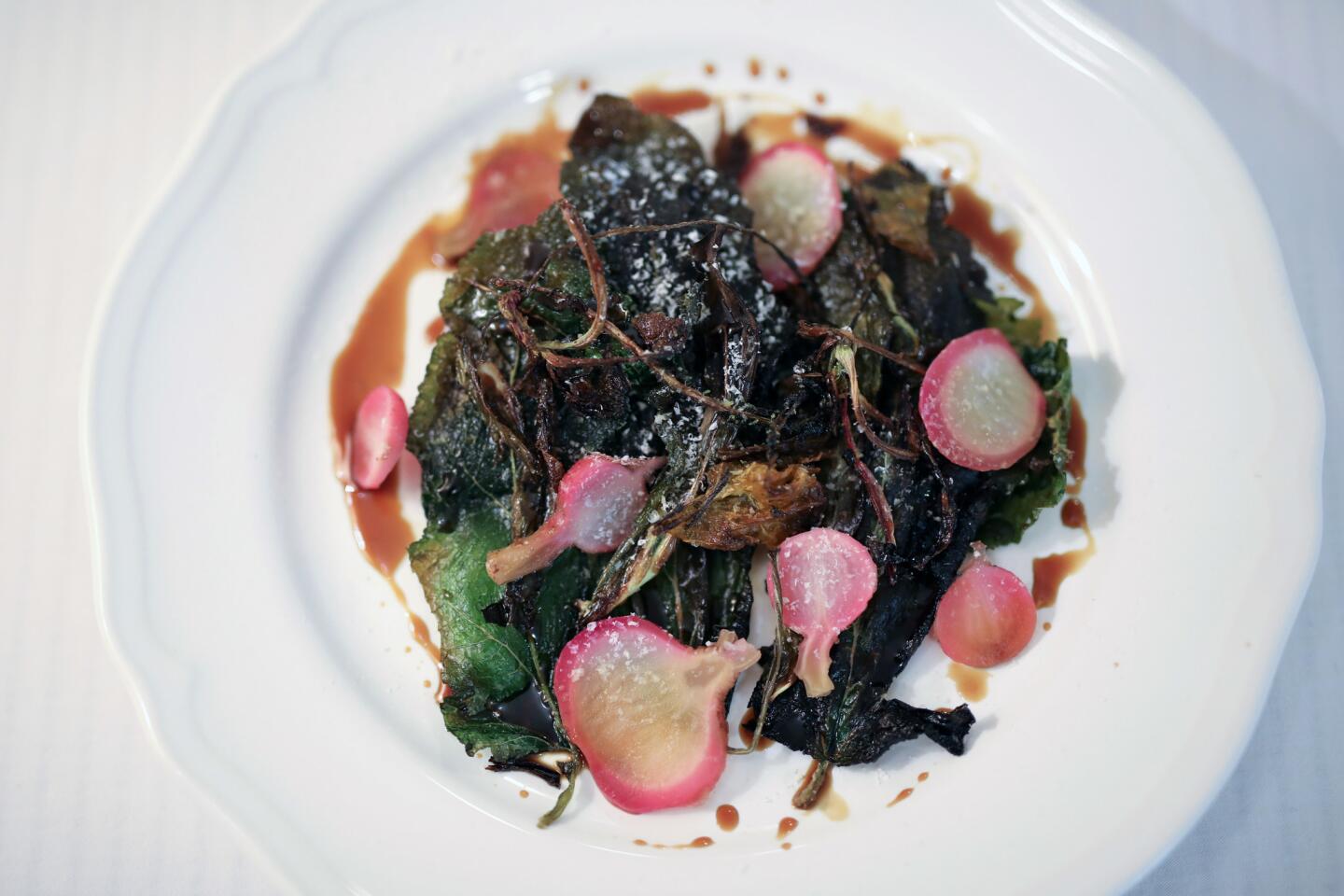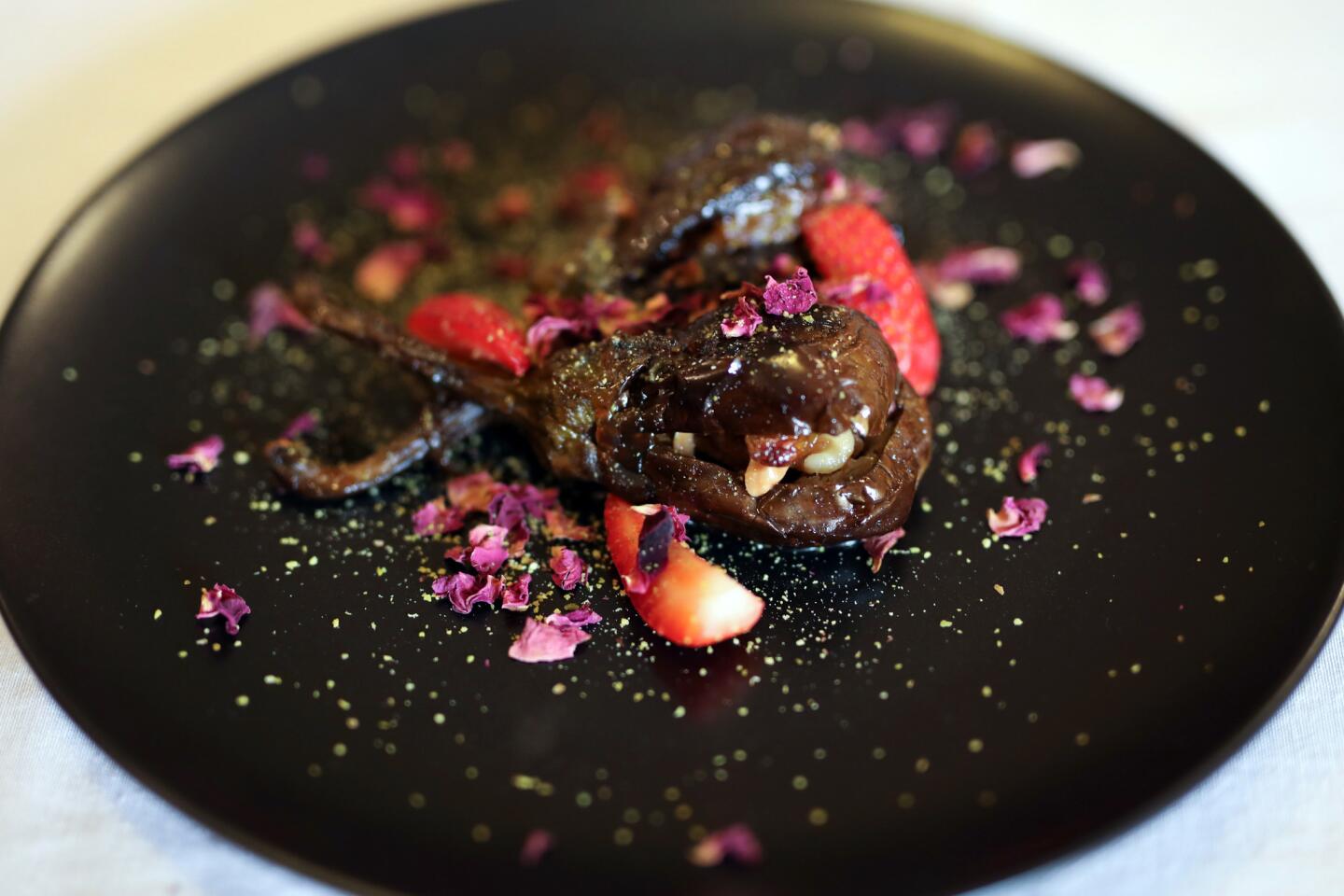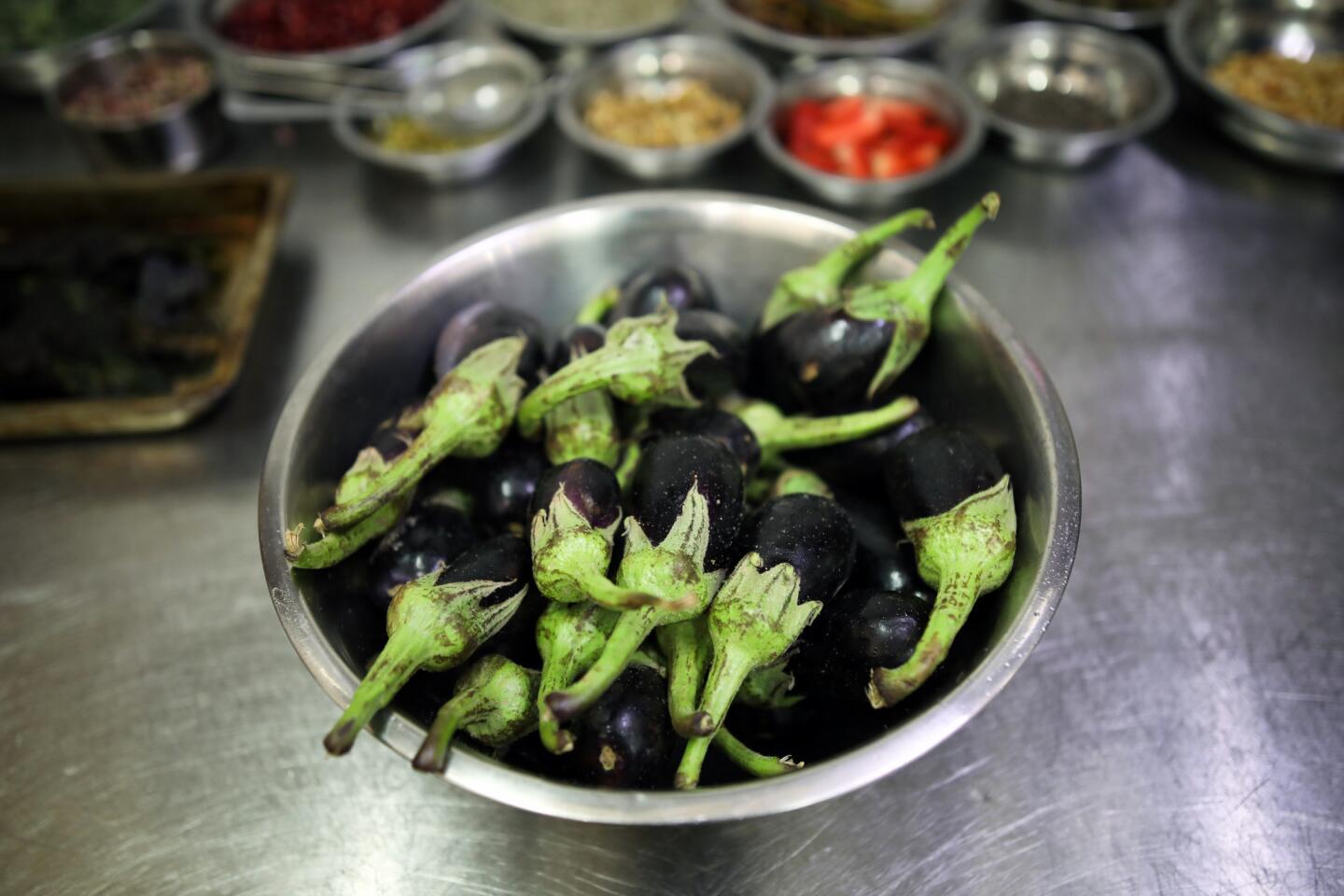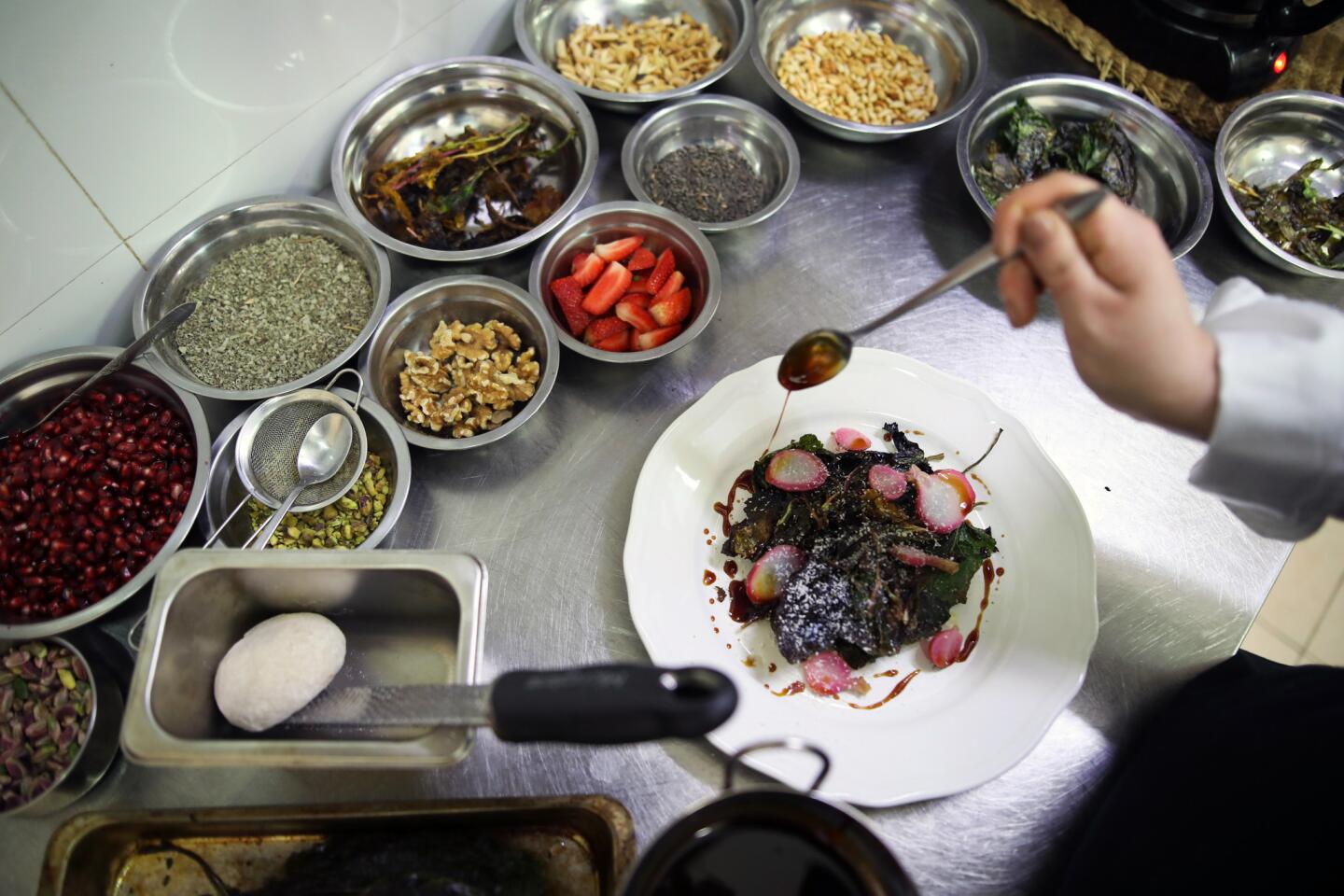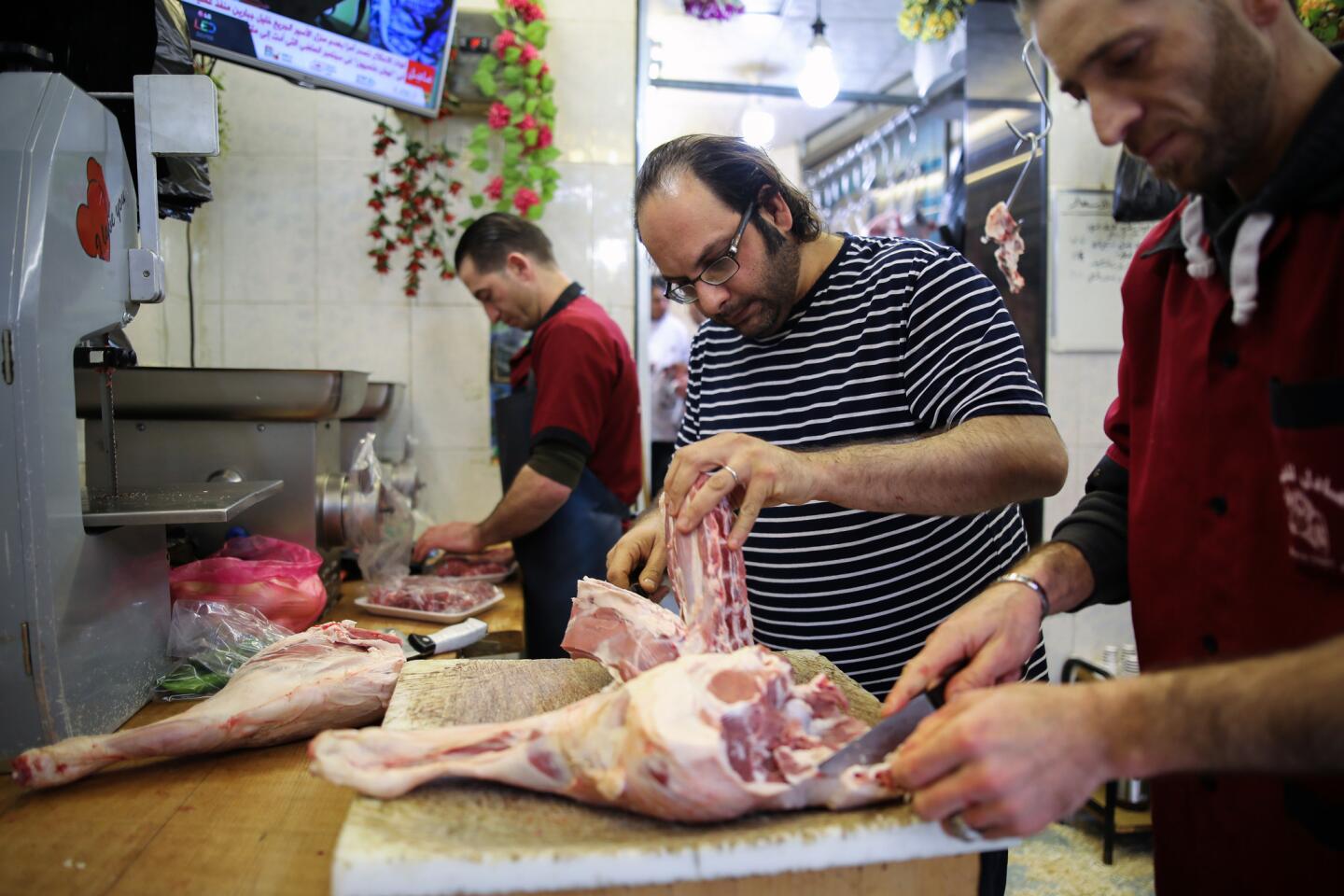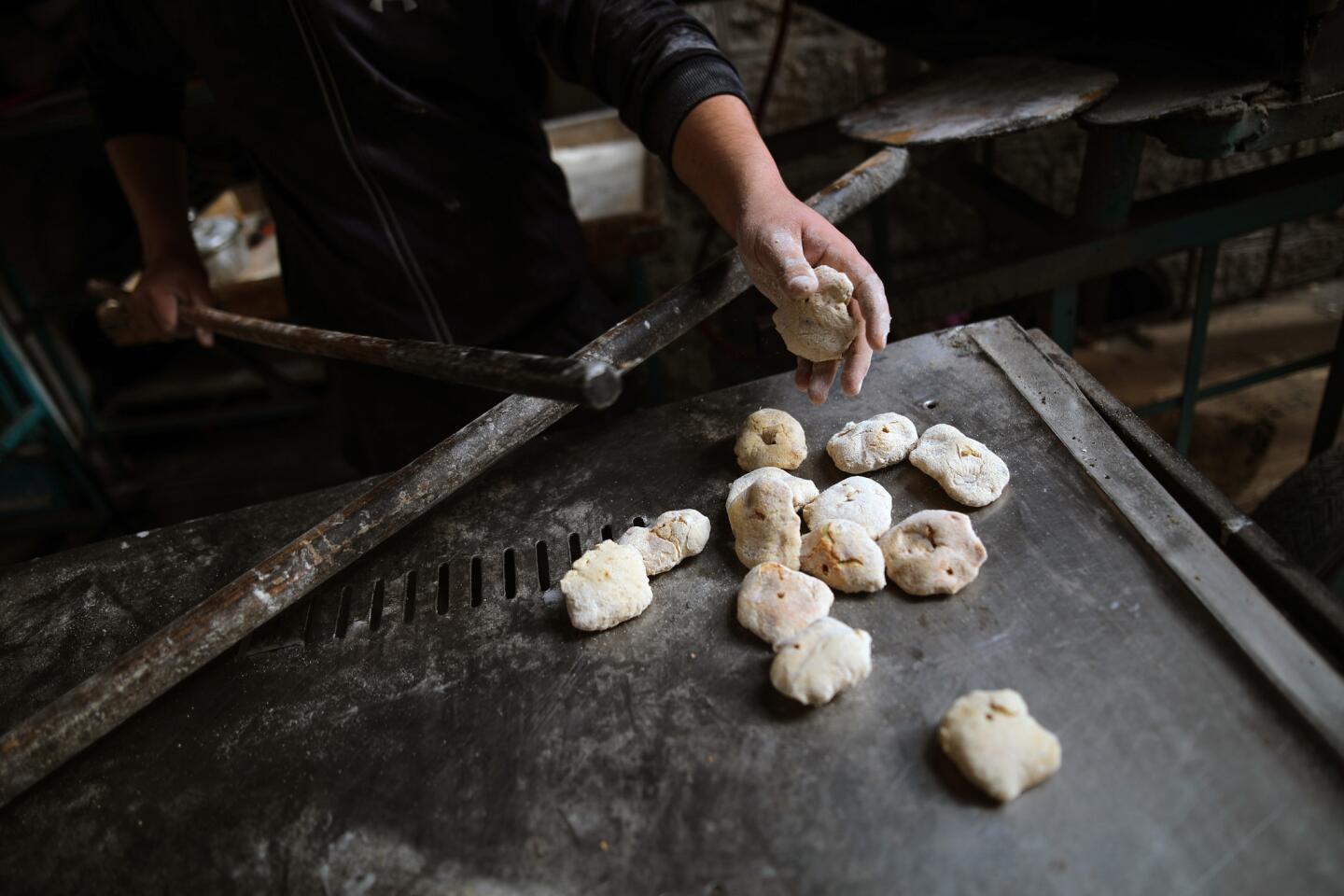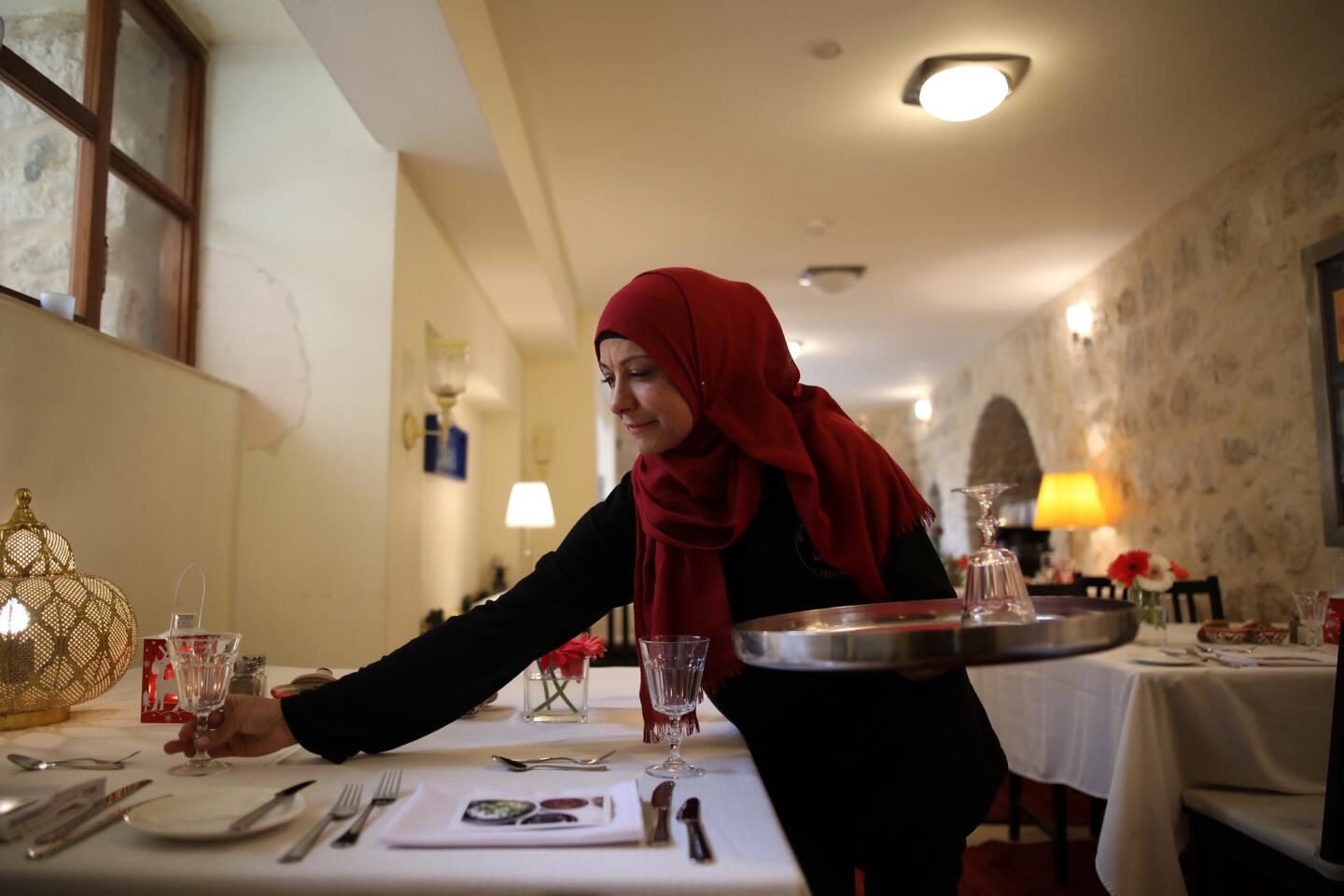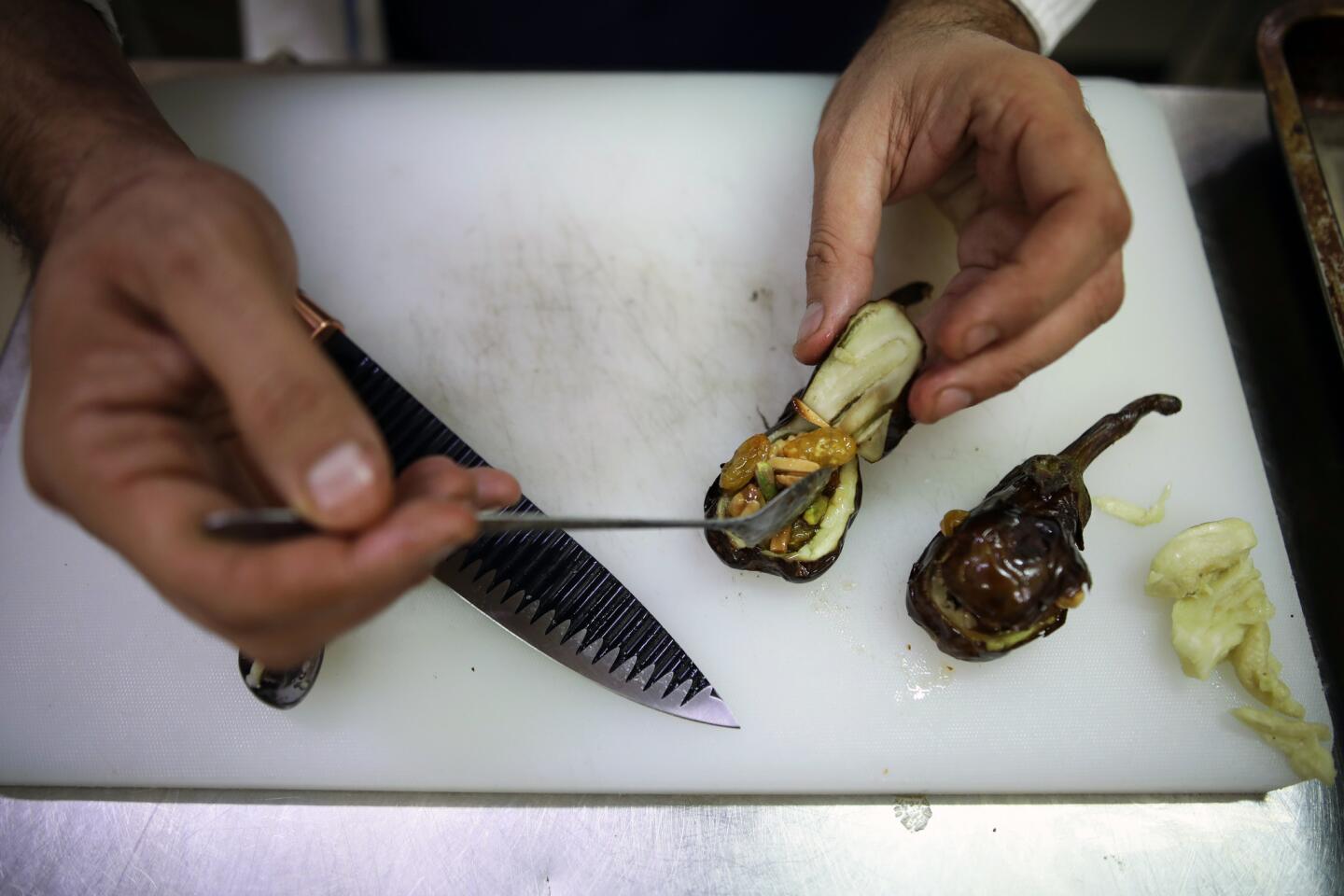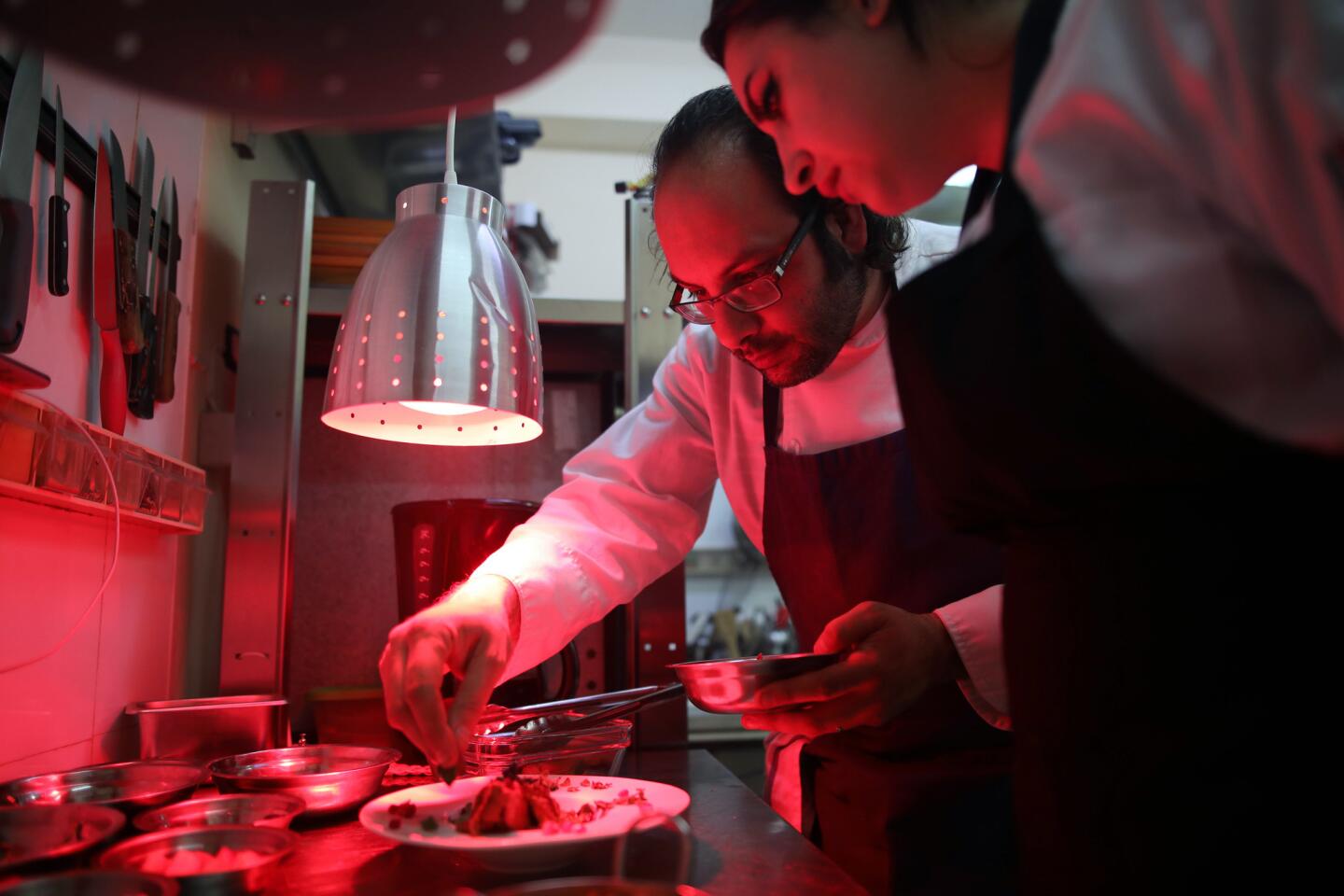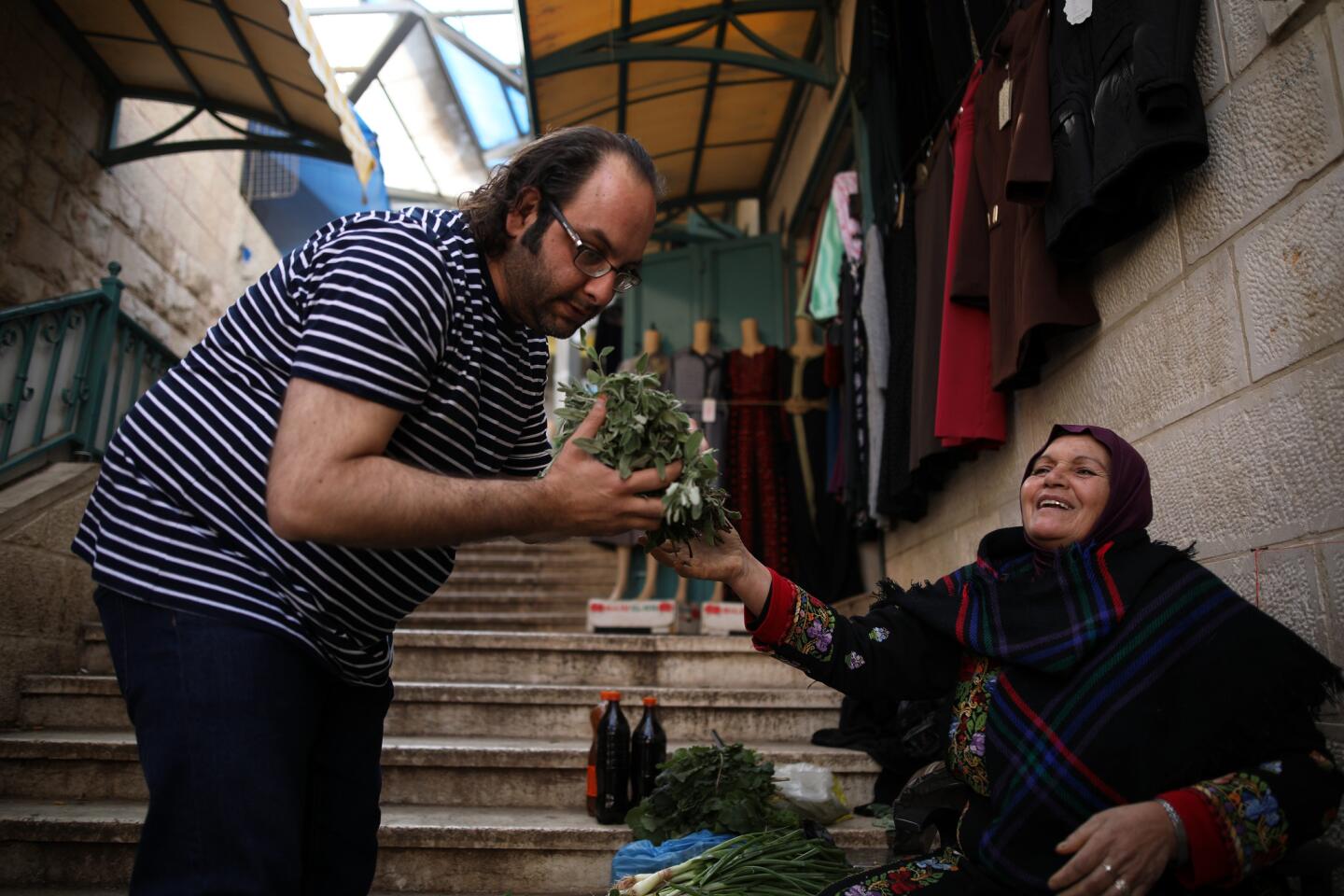A restaurant in the West Bank makes its mark
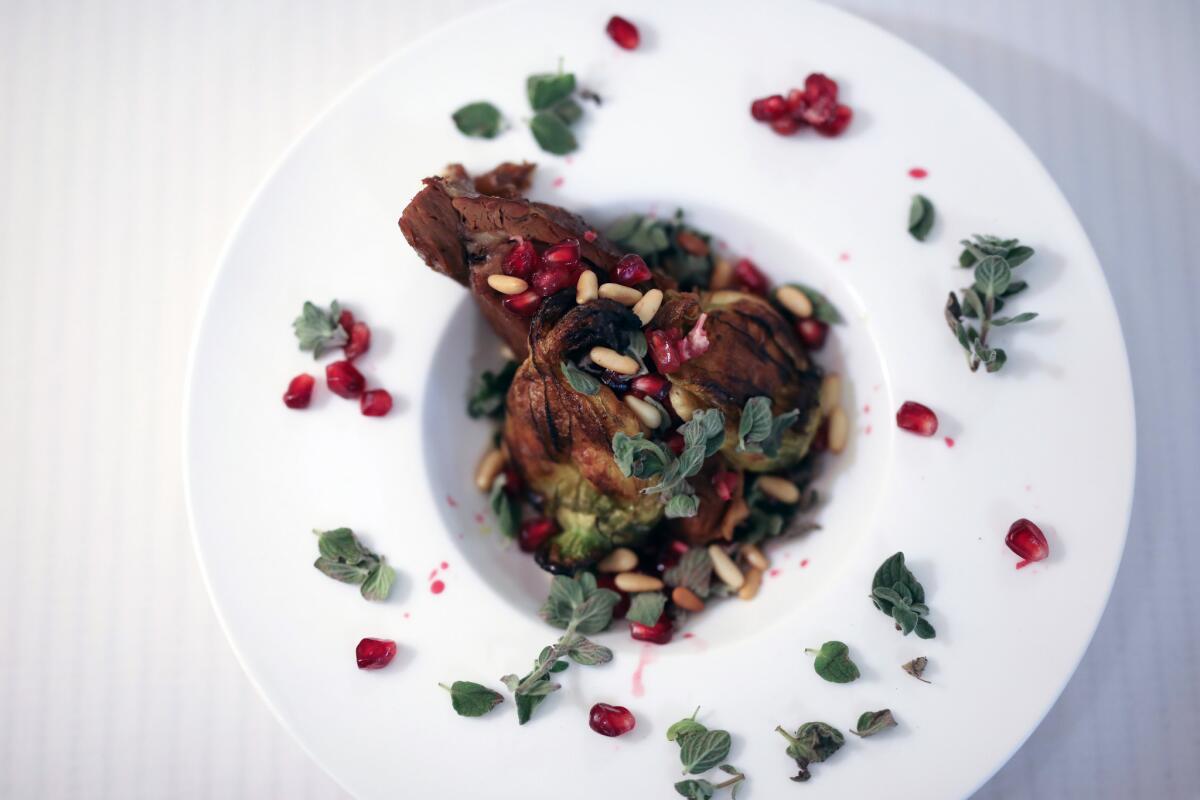
- Share via
Reporting from BETHLEHEM, West Bank — The days are getting shorter, the nights cooler — and for Fadi Kattan, a Bethlehem hotelier, restaurateur and entrepreneur, a remarkable year is drawing to a close.
About 3½ years after embarking on the gamble of his life — opening Fawda, a modern, irreverent and forward-looking restaurant in the heart of Bethlehem, a town associated with antiquity, momentousness and piousness — Kattan, 40, has found his footing.
Kattan faced a litany of challenges when he opened Fawda in 2015. Palestinians are notoriously reluctant restaurant-goers, firmly convinced that no paid-for feast can rival one cooked at home, meals beyond the reach of tourists who flock to the nearby Church of the Nativity and Manger Square.
Palestinian eateries normally fall into two categories: sweetshops, where women and men can be seen enjoying an afternoon knafeh, a crisp Palestinian goat-cheese pastry, and wrapping up trays of baklava to take home; and workers’ haunts — the ubiquitous hummus kiosks, falafel joints and grilled-meat diners — that stop short of offering a full restaurant experience and often close long before dinner time.
In Bethlehem and Jericho, where tourists are most common, the “best” restaurants are found in hotels, but they offer a limited and unadventurous menu of grilled meats and fish and spaghetti with tomato sauce.
Kattan, who is Franco Palestinian and the product of a peripatetic Bethlehem family that at times has had branches in India, Switzerland and Japan, launched his venture with a completely different set of ambitions: he wanted to turn Palestinian cuisine inside out.
“What happens when you ask a Palestinian where to eat great food?” he asks. “He invites you home to eat his mother’s cooking. And what happens when you say “I love hawarneh!” — a light, piquant wintry snack made of wild mustard leaves and yogurt — “your Palestinian will retort, ‘Only my aunt knows where you find the best leaves!’ There is no public place for great cuisine,” he says. “It is held as a secret.”
“There’s no difference between Bethlehem’s pride in its local lamb and slow food,” he says, invoking the international locavore association. In August, Fawda was chosen as a destination restaurant in the locavore food bible “Truth, Love and Clean Cutlery.”
The greatest affirmation came from one of Kattan’s personal heroes, Alice Waters, the California chef and food activist, who serves as one of the magazine’s editors.
“This is the year when I started feeling that we can do something different in Bethlehem and in Palestine,” he says, adding, “I mean, Alice Waters!”
He struggled for several years to persuade a local butcher to age beef and lamb when its freshness had, until then, been a top selling point. It took an effort to convince his local baker to make, for Fawda, tiny pita breads smaller than the palm of a hand.
This particular component was required for his version of musakhan, a traditional Palestinian main dish in which a whole chicken is roasted on a wide flatbread, covered with sumac, onions and pine nuts.
He struggled for several years to persuade a local butcher to age beef and lamb, when its freshness had, until then, been a top selling point.
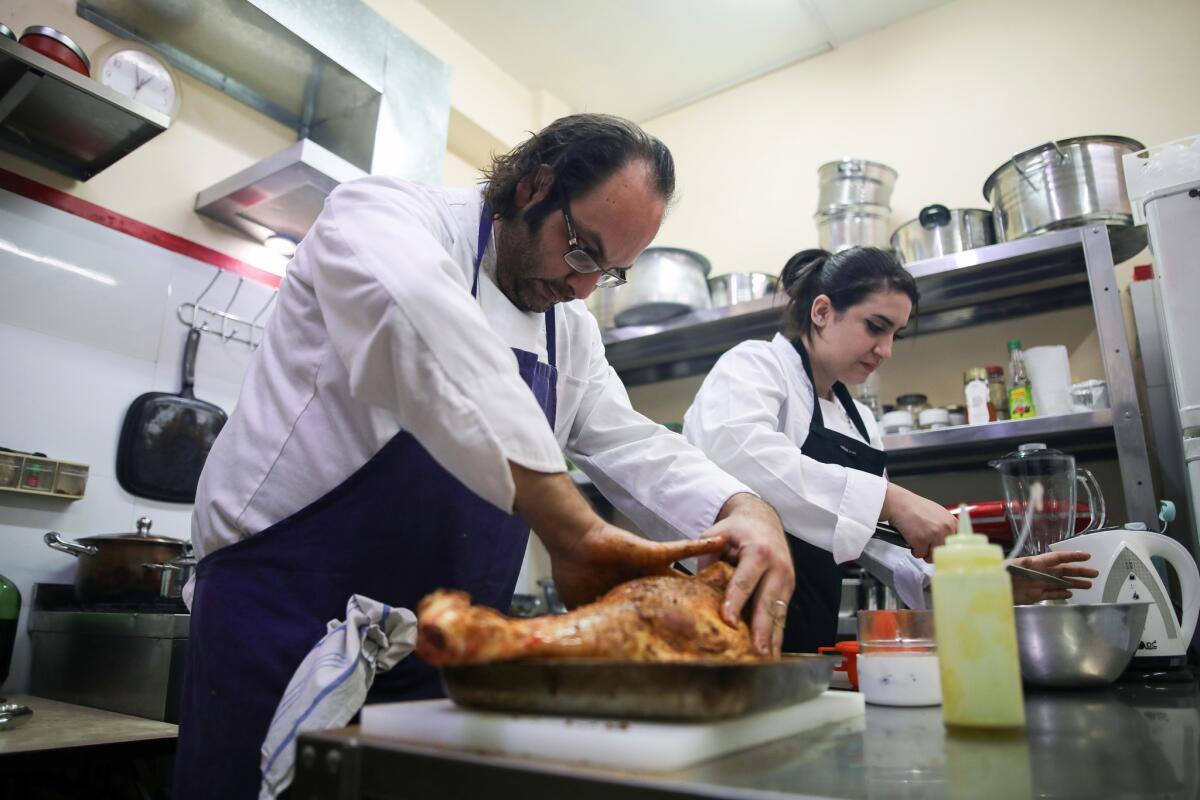
In Kattan’s re-creation, a lush chicken liver paté is served with a gleaming, thumbnail-size side of caramelized onion confiture and a drop of ruby pomegranate jelly over the miniature puffed breads, as a first course.
The word fawda, meaning chaos or commotion in Arabic, poorly describes the serene restaurant or its laid-back chef, but it encapsulates something of the mutinous spirit he has brought to Bethlehem.
Kattan has little patience for local pieties. Although Bethlehem is a Muslim-majority city, he serves pork, posting images of a smoldering and shiny porcine shoulder on Instagram. He is “thrilled” that 30% of his clients are gay, “and the majority of my clients are individual travelers, meaning they are not pilgrims.”
An atheist in a holy city, he dismisses the never-ending hummus wars between Israelis and Palestinians.
“Hummus belongs to an Israeli Jew whose family came from Aleppo, Syria, as much as it belongs to me,” he says, but he refuses to work alongside Israeli chefs “because we’re not equal; there’s an occupation, and we are not in the same place.”
That said, he welcomes Jewish guests, Israeli or not, going so far as to store what may be the only set of kosher cookware in the Palestinian territories in his cupboard.
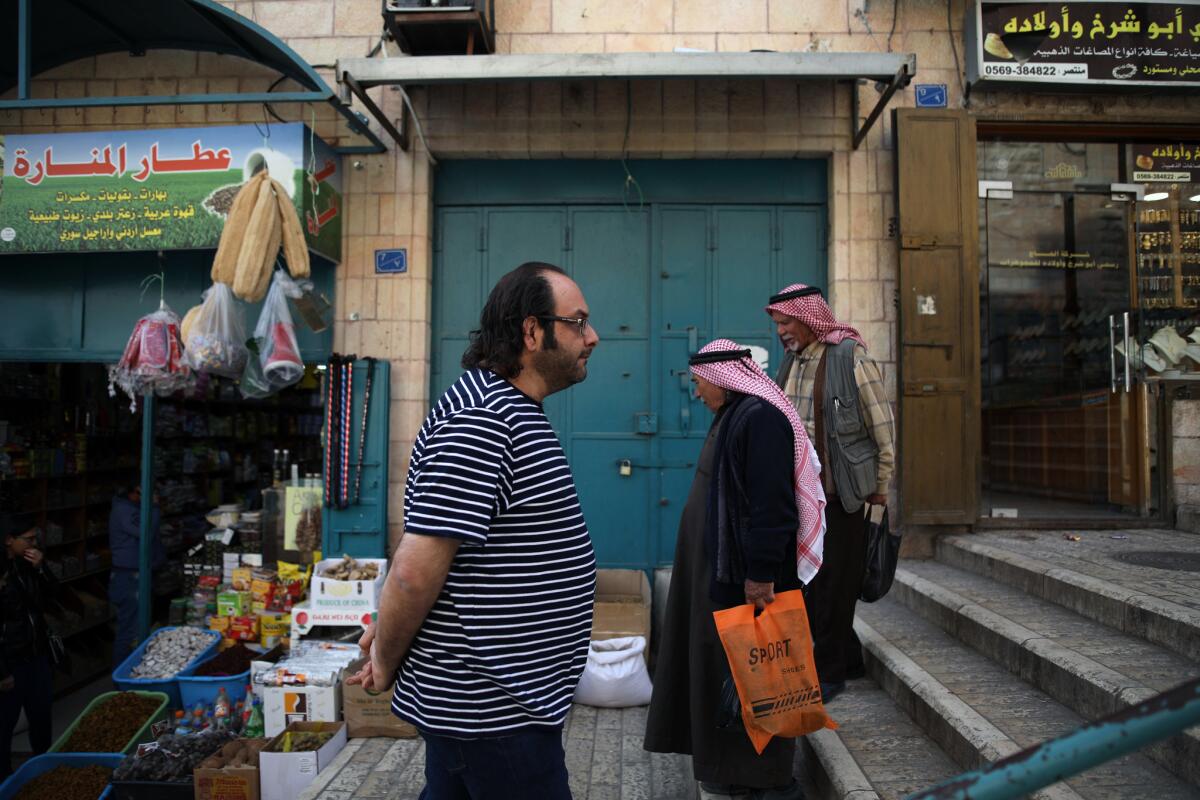
Mostly, he is focused on presenting a contemporary and compelling rendition of Palestinian food. An intriguing burst of freshness in an autumn dish likely comes from Hebron grapes, as delicate as bubbles of tea. The mysterious umami of Kattan’s green salads is brought by flakes of laban jamid, a sandstone-like dried yogurt.
And the dark orbs at the end of the meal that look like plums glacéed in brown sugar and rosewater? They’re petite eggplants grown just south of Bethlehem, transformed by Kattan into a sweet.
More to Read
Eat your way across L.A.
Get our weekly Tasting Notes newsletter for reviews, news and more.
You may occasionally receive promotional content from the Los Angeles Times.
